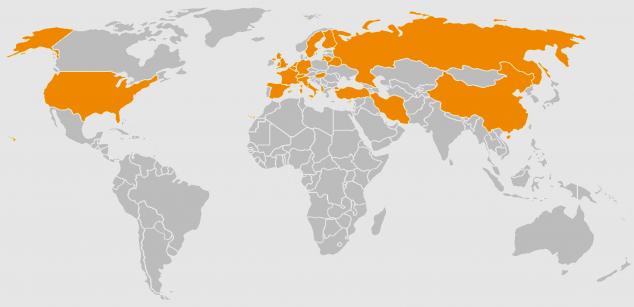EHA-SWG Scientific Meeting on Shaping the Future of Mesenchymal Stromal Cells Therapy
The EHA-SWG Scientific Meeting on Shaping the Future of Mesenchymal Stromal Cells Therapy brought together basic science, as well as translational and clinical research on November 23-25, 2017 in Amsterdam, The Netherlands.
The meeting addressed recent findings in the biology of tissue homeostasis, on the role of MSC in tissue repair and immune modulatory mechanisms underlying treatment response, as well as translational hurdles in product development, including potency assay development. The international regulatory landscape and the role of biotech and academia in the context of clinical trials were also incorporated to provide a complete overview of the topic.
Attendees from 16 countries from Europe, Asia and North America discussed the future of mesenchymal stromal cells therapy, under the chairmanship of Prof Wim Fibbe from Leiden University Medical Center in The Netherlands and Prof Francesco Dazzi from King’s College London in the United Kingdom.
The following program topics were the main reasons many of the attendees came to the meeting:
- Basic developmental biology of MSC and their role in immune regulation
- Mechanisms of MSC immune regulation
- Potency assay design
- Technological development
- Clinical trial results with MSC
- Clinical issues
- Regulatory and ethical aspects of clinical trials using MSC
One of the attendees added that the meeting topic is a “very relevant topic, very important that EHA takes a standpoint.”
The meeting program consisted of lectures, panel discussions and oral presentations. Researchers and clinicians had the opportunity to submit an abstract. The authors of the selected abstracts presented their research in one of the four abstract sessions moderated by faculty members. There was enough time for discussion after each presentation.
There was a unique atmosphere with an even representation of basic, clinical and translational researchers and clinical practitioners, with 40,63% of the attendees working as biomedical scientist and 34,37% as hematologist.

The social interaction between delegates and experts was a wonderful experience for many. Delegates had the chance to ask more in-depth questions to experts and/or talk about their research. Both the faculty and attendees appreciated the sufficient time for discussions and interaction with everyone present.
The biggest takeaway for delegates was being informed on the latest updates on the application of mesenchymal stromal cells in various fields of hematology, tissue regeneration and beyond. The majority of the attendees provided feedback that the program content was relevant to their work, was challenging and highly stimulating.
Another attendee remarked that this was “The best meeting in a long time!”
The meeting was organized with the main support of EHA and unrestricted educational grants provided by TiGenix and Eurocept pharmaceuticals.
EHA would like to thank the chairs, the scientific program committee, the faculty and the case presenters, and sponsors for their invaluable contribution to this excellent meeting.



 Back
Back